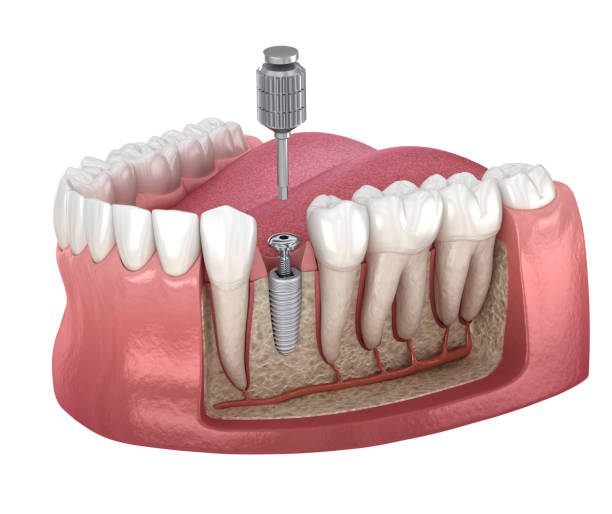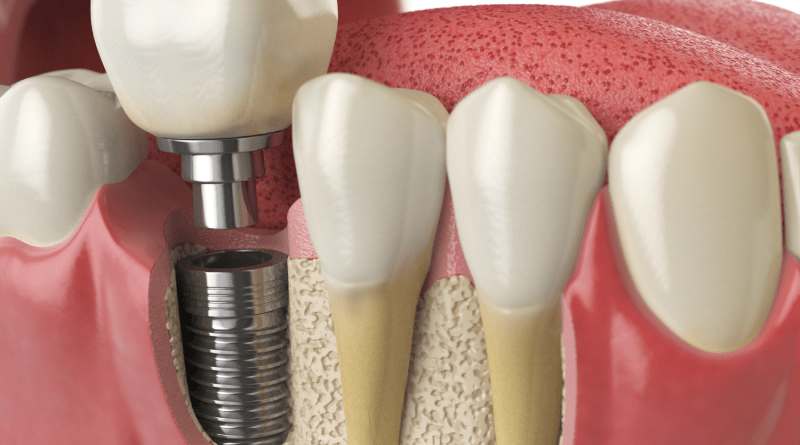Discover the Top 10 Advantages of Dental Implants
Dental implants have revolutionized the field of dentistry, offering a reliable and long-lasting solution for missing teeth. This article aims to explore the top 10 advantages of dental implants, shedding light on their benefits and why they are considered an ideal tooth replacement option. Whether you have lost a single tooth or multiple teeth, understanding the advantages of dental implants can help you make an informed decision about your oral health.
What Are Dental Implants?
Definition and Function
Dental implants are artificial tooth roots made of biocompatible materials, typically titanium, that are surgically placed into the jawbone. They serve as sturdy anchors for dental prosthetics, such as crowns, bridges, or dentures, to replace missing teeth.
Types of Dental Implants
There are two main types of dental implants: endosteal and subperiosteal. Endosteal implants are directly placed into the jawbone, while subperiosteal implants are positioned on or above the jawbone, beneath the gum tissue. Endosteal implants are the most common type used today.
10 Advantages of Dental Implants
- Improved Aesthetics
One of the primary advantages of dental implants is their ability to enhance your smile. Implants are designed to closely resemble natural teeth, resulting in a seamless and attractive appearance. They blend seamlessly with your existing teeth, providing a natural-looking solution for missing teeth.
- Enhanced Functionality
Dental implants offer improved functionality compared to traditional tooth replacement options. Unlike removable dentures, implants are securely anchored in the jawbone, providing stability and allowing you to bite and chew with confidence. With dental implants, you can enjoy a varied diet without worrying about discomfort or slippage.
- Longevity and Durability
Another significant advantage of dental implants is their long lifespan. With proper care and oral hygiene, implants can last for many years, even a lifetime. This longevity makes them a cost-effective solution compared to other tooth replacement options that may require frequent repairs or replacements.
- Preserving Jawbone Health
When a tooth is lost, the underlying jawbone can start to deteriorate over time. Dental implants help preserve jawbone health by stimulating bone growth through a process called osseointegration. The implant fuses with the jawbone, providing stability and preventing bone loss, which can occur with traditional dentures or bridges.
- Natural Look and Feel
Dental implants closely resemble natural teeth in both appearance and function. They are custom-made to match the color, shape, and size of your existing teeth, ensuring a seamless integration within your smile. Additionally, implants feel natural in your mouth, eliminating any discomfort or awkwardness associated with removable dentures.
- Improved Speech
Missing teeth can affect your ability to speak clearly, leading to difficulties in communication. Dental implants restore your ability to articulate words properly, allowing you to speak with confidence and clarity. Unlike dentures, which can slip or cause slurred speech, implants provide a stable and reliable foundation for natural speech.

- Convenience and Easy Maintenance
Dental implants offer convenience and ease of maintenance. Unlike removable dentures that require adhesive and daily removal for cleaning, implants can be cared for just like natural teeth. Regular brushing, flossing, and routine dental check-ups are all that’s needed to maintain the health and longevity of your implants.
- Enhanced Chewing Ability
With dental implants, you can regain full chewing capacity, allowing you to enjoy your favorite foods without restrictions. Implants provide a strong and stable bite force, similar to natural teeth, enabling you to bite into and chew even tough or crunchy foods with ease.
- Increased Comfort
Traditional dentures can cause discomfort, gum irritation, and sore spots due to friction and pressure on the gums. In contrast, dental implants eliminate these issues by securely anchoring the prosthetic teeth to the jawbone. This stability and support result in increased comfort, allowing you to eat, speak, and smile confidently.
- Boosted Self-Confidence
Missing teeth can significantly impact your self-confidence and self-esteem. Dental implants restore your smile, helping you feel more confident in social and professional settings. The natural look, feel, and functionality of implants can enhance your overall appearance and boost your self-image.
Are Dental Implants Right for You?
Determining if dental implants are suitable for you requires a comprehensive evaluation by a qualified dental professional. Factors such as overall oral health, bone density, and the presence of any underlying conditions will be considered. Consulting with a dentist specializing in implant dentistry can help determine the best treatment plan for your specific needs.
The Dental Implant Procedure
Evaluation and Treatment Planning
The dental implant procedure begins with a thorough evaluation of your oral health. X-rays, CT scans, and impressions of your teeth and jawbone are taken to assess the condition and determine the optimal placement of the implants. A customized treatment plan is then developed based on this evaluation.
Implant Placement
The implant placement procedure is typically performed under local anesthesia to ensure your comfort. The dentist will carefully make an incision in the gum tissue to expose the underlying jawbone. A titanium implant post is then inserted into the jawbone. The gum tissue is stitched back into place, covering the implant.
Osseointegration
After the implant placement, a process called osseointegration takes place. This is when the implant fuses with the surrounding jawbone over a period of several months. The bone grows and integrates with the implant, providing a stable foundation for the artificial tooth or teeth.
Attaching the Artificial Teeth
Once osseointegration is complete, abutments are attached to the implant posts. These abutments serve as connectors between the implants and the artificial teeth. Impressions of your teeth are taken to create custom-made crowns, bridges, or dentures that will be attached to the abutments. The artificial teeth are designed to match the color, shape, and size of your natural teeth, ensuring a seamless and aesthetic result.
Aftercare and Maintenance
Proper aftercare and maintenance are crucial to the success and longevity of dental implants. It is important to follow your dentist’s instructions, which may include regular brushing, flossing, and using antibacterial mouthwash. Routine dental check-ups will also be necessary to monitor the health of your implants and address any potential issues.
Dental Implants vs. Other Tooth Replacement Options
While there are alternative options for replacing missing teeth, such as dentures and bridges, dental implants offer several distinct advantages. Unlike dentures, implants do not require adhesive and do not slip or cause discomfort. Implants also provide better chewing ability compared to bridges, as they do not rely on neighboring teeth for support. Additionally, implants have a longer lifespan and help preserve jawbone health, making them a preferred choice for many patients.
Potential Risks and Complications
Like any surgical procedure, dental implant placement carries some risks. These risks may include infection, damage to surrounding structures, nerve injury, or implant failure. However, these complications are rare and can be minimized by choosing an experienced and qualified dentist and following proper aftercare instructions.
Frequently Asked Questions (FAQs)
How long do dental implants last?
Dental implants have the potential to last a lifetime with proper care and maintenance. However, individual factors such as oral hygiene practices, overall health, and lifestyle habits can influence the longevity of implants.
Is the dental implant procedure painful?
The dental implant procedure is usually performed under local anesthesia, ensuring that you will not feel any pain during the process. After the procedure, some discomfort and swelling may occur, but this can be managed with pain medication prescribed by your dentist.
Can dental implants be done in a single visit?
The dental implant process typically requires multiple visits over a few months. This allows time for implant placement, osseointegration, and the attachment of artificial teeth. However, advancements in dental technology may allow for immediate implant placement in certain cases, but this will depend on your individual circumstances.
What are the success rates of dental implants?
Dental implants have a high success rate, with reported success rates of over 95%. Proper case selection, meticulous planning, and adherence to aftercare instructions greatly contribute to the success of dental implant procedures.
Are dental implants covered by insurance?
Dental insurance coverage for implants may vary. Some insurance plans may provide partial coverage, while others may not cover implant procedures. It is best to consult with your insurance provider to determine the extent of coverage for dental implants.
Conclusion
Dental implants offer numerous advantages for individuals with missing teeth. They provide improved aesthetics, enhanced functionality, and durability. Dental implants also help preserve jawbone health and offer a natural look and feel. The convenience of maintenance, enhanced chewing ability, and increased comfort make them an appealing choice.
